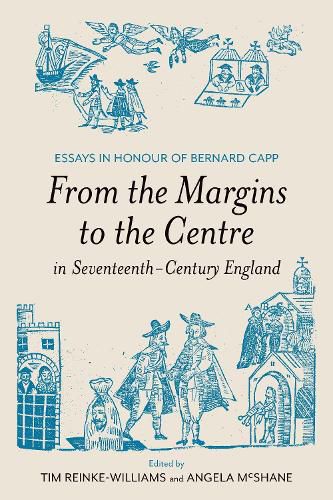Readings Newsletter
Become a Readings Member to make your shopping experience even easier.
Sign in or sign up for free!
You’re not far away from qualifying for FREE standard shipping within Australia
You’ve qualified for FREE standard shipping within Australia
The cart is loading…






Collection of essays showcasing how one of the greatest historians of seventeenth-century England has shaped and continues to influence the direction of studies in early modern society, culture and belief.
This collection of essays showcases how, over an illustrious career spanning more than fifty years, Professor Bernard Capp FBA has shaped and continues to influence the direction of studies in early modern English social and cultural history. Initially influenced by the historiographical agendas set in the 1960s by Christopher Hill and Sir Keith Thomas, over the last five decades Capp has produced important studies of religious radicalism, print culture, gender and sibling relations, the culture wars of the 1650s and the maritime world. Collectively this body of work enabled him not only to recover the experiences of the marginalised, but also to highlight the importance of topics previously deemed (at best) of marginal interest to historians of seventeenth-century England.
The contributions to this volume, produced by a new generation of historians whose doctoral work Capp supervised and examined, are similarly wide-ranging and innovative. Engaging in dialogue with Capp's work, as well as those he has been in dialogue with himself, the authors provide novel studies of hermits, sailors and surgeons, as well as shedding fresh light on topics such as the politics of the parish, the lives of plebeian women, men's emotions, and the cultural worlds of 'Jane' Shore and John Taylor the Water-Poet. Like Capp, the authors use evidence from legal records, life-writings and cheap printed texts to recover marginalised voices and reconstruct the everyday lives of those overlooked and misunderstood by their contemporaries and by historians. By doing so, they demonstrate how one of the greatest historians of seventeenth-century England continues to inspire the production of innovative studies of early modern society, culture and belief.
$9.00 standard shipping within Australia
FREE standard shipping within Australia for orders over $100.00
Express & International shipping calculated at checkout
Collection of essays showcasing how one of the greatest historians of seventeenth-century England has shaped and continues to influence the direction of studies in early modern society, culture and belief.
This collection of essays showcases how, over an illustrious career spanning more than fifty years, Professor Bernard Capp FBA has shaped and continues to influence the direction of studies in early modern English social and cultural history. Initially influenced by the historiographical agendas set in the 1960s by Christopher Hill and Sir Keith Thomas, over the last five decades Capp has produced important studies of religious radicalism, print culture, gender and sibling relations, the culture wars of the 1650s and the maritime world. Collectively this body of work enabled him not only to recover the experiences of the marginalised, but also to highlight the importance of topics previously deemed (at best) of marginal interest to historians of seventeenth-century England.
The contributions to this volume, produced by a new generation of historians whose doctoral work Capp supervised and examined, are similarly wide-ranging and innovative. Engaging in dialogue with Capp's work, as well as those he has been in dialogue with himself, the authors provide novel studies of hermits, sailors and surgeons, as well as shedding fresh light on topics such as the politics of the parish, the lives of plebeian women, men's emotions, and the cultural worlds of 'Jane' Shore and John Taylor the Water-Poet. Like Capp, the authors use evidence from legal records, life-writings and cheap printed texts to recover marginalised voices and reconstruct the everyday lives of those overlooked and misunderstood by their contemporaries and by historians. By doing so, they demonstrate how one of the greatest historians of seventeenth-century England continues to inspire the production of innovative studies of early modern society, culture and belief.